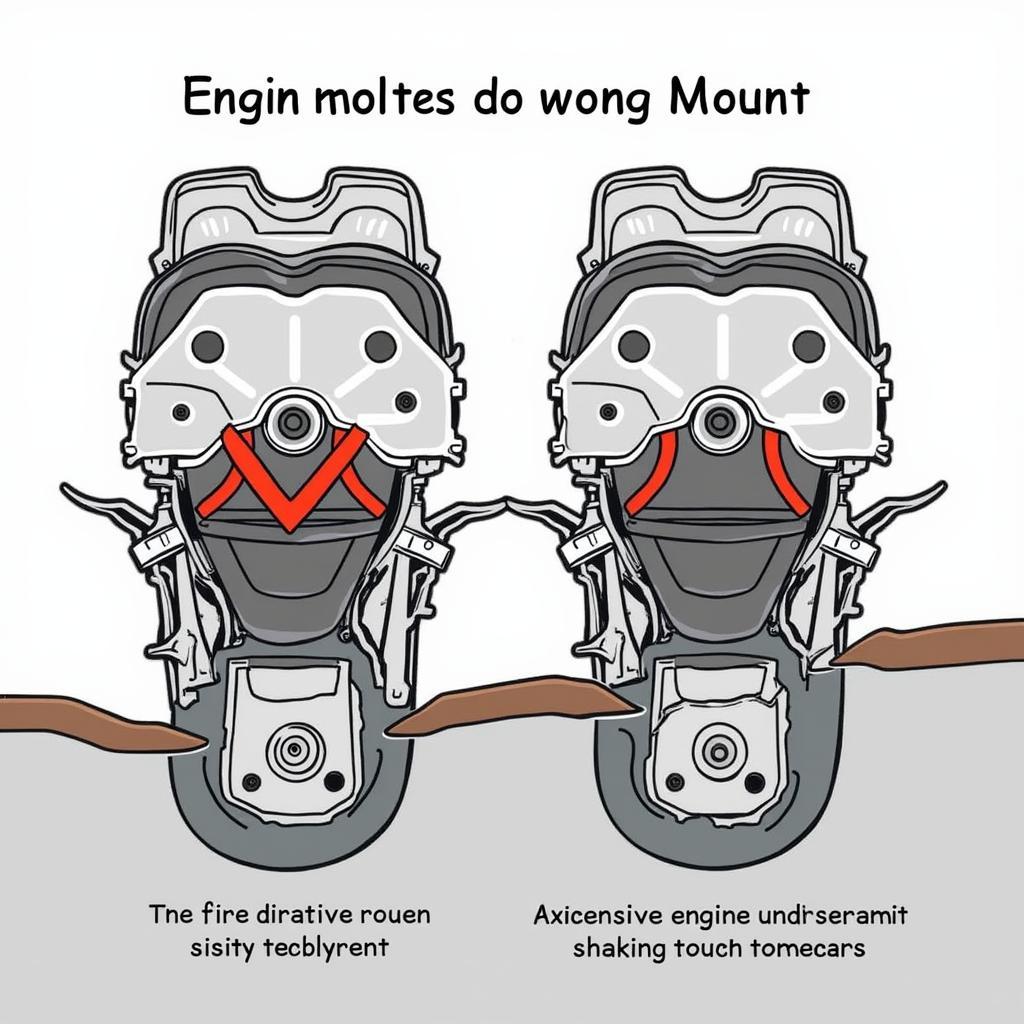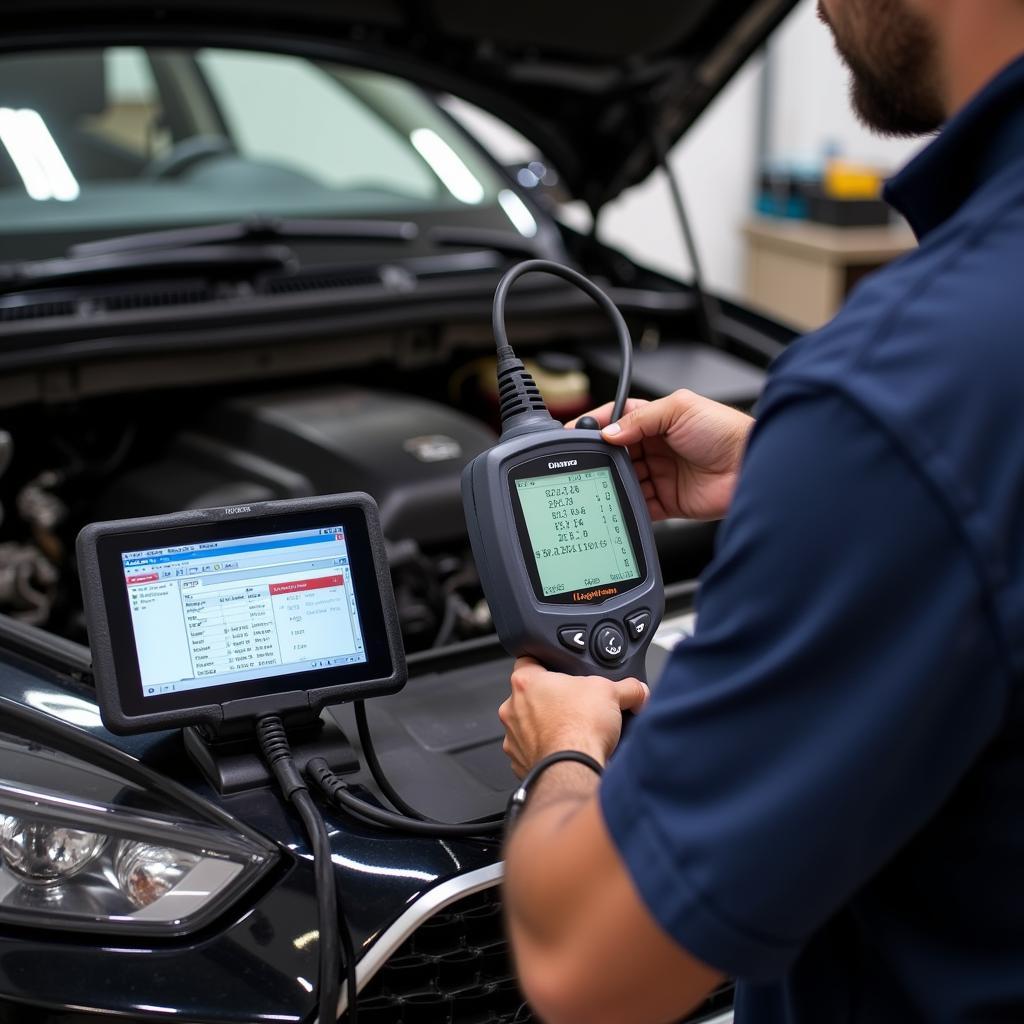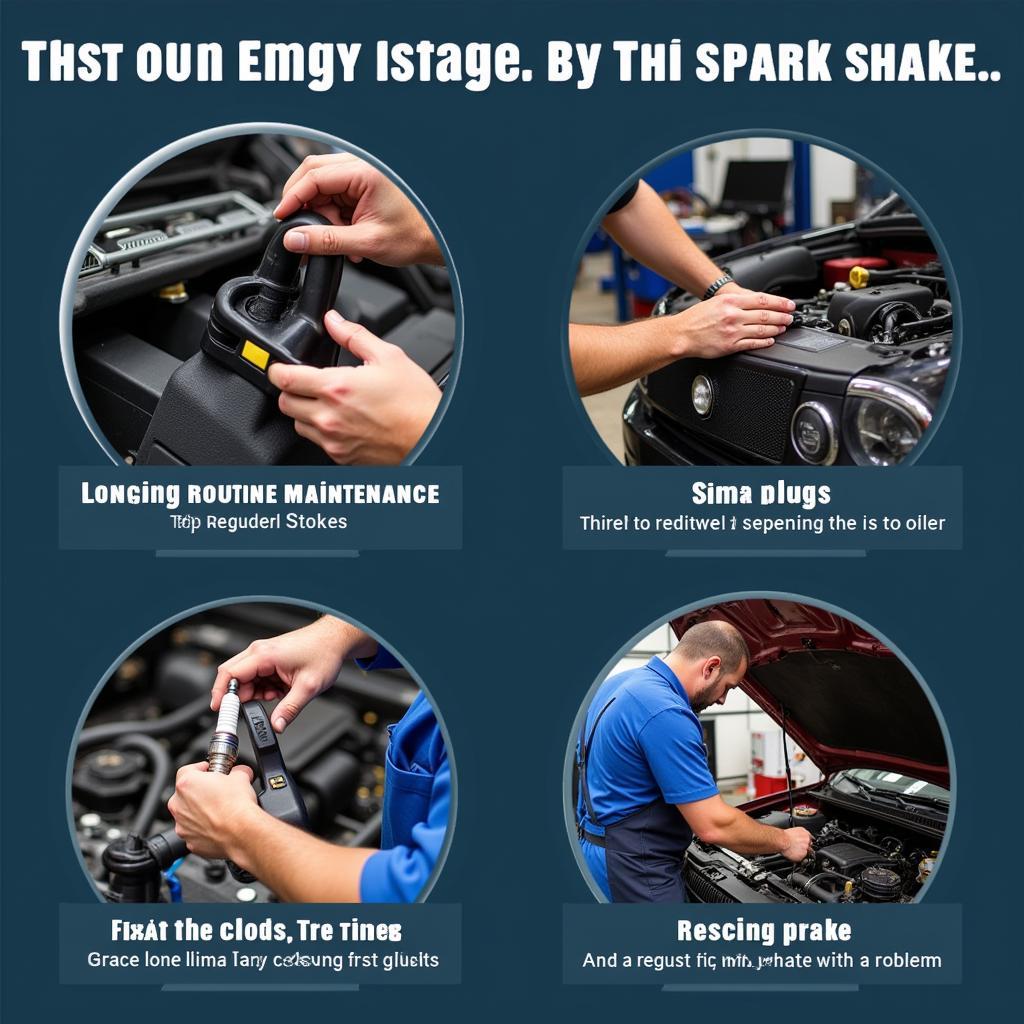When your car engine shakes, it can be a jarring and concerning experience. This shaking, often accompanied by other symptoms, points to an underlying issue that needs immediate attention. Understanding the potential causes can help you diagnose the problem and determine the necessary repairs. We’ll explore the common reasons behind engine shaking and guide you through potential solutions. Find out what you can do to keep your engine running smoothly.
If your car is shaking, you should consider problems with the axle. You can learn more about this by reading our article on how to know when problem with car axle.
Common Causes of Engine Shake
Engine shake can stem from a variety of issues, ranging from simple maintenance oversights to more complex mechanical failures. Let’s break down some of the most frequent culprits:
Spark Plugs and Ignition System
Worn-out or faulty spark plugs can disrupt the combustion process, leading to engine misfires and shaking. A failing ignition coil can also cause similar symptoms.
Fuel System Issues
A clogged fuel filter or a malfunctioning fuel injector can restrict fuel flow, starving the engine and causing it to shake, especially during acceleration.
Vacuum Leaks
Leaks in the vacuum system can disrupt the air-fuel mixture, affecting engine performance and causing shaking.
Engine Mounts
Worn or damaged engine mounts can allow the engine to move excessively, resulting in noticeable vibrations and shaking.
 Worn Engine Mounts Causing Car to Shake
Worn Engine Mounts Causing Car to Shake
Internal Engine Problems
More serious issues like low compression, worn piston rings, or a damaged crankshaft can also cause engine shake. These problems typically require professional diagnosis and repair.
Diagnosing the Problem
Diagnosing the cause of engine shaking requires a systematic approach. Start by checking the simple things, such as spark plugs and fuel filters. If the problem persists, move on to more complex checks like vacuum leaks and engine mounts. Don’t hesitate to consult a qualified mechanic if you’re unsure.
Check Engine Light
If your check engine light is on, it’s crucial to get the car’s computer scanned for diagnostic trouble codes (DTCs). These codes can pinpoint the source of the problem.
Visual Inspection
Inspect the engine compartment for any visible signs of damage or leaks. Look for loose or disconnected hoses, cracked wires, or worn engine mounts.
Professional Diagnosis
If you can’t identify the cause of the engine shaking, it’s best to take your car to a qualified mechanic. They have the tools and expertise to accurately diagnose the problem and recommend the appropriate repairs.
 Mechanic Diagnosing Engine Shake with Diagnostic Tools
Mechanic Diagnosing Engine Shake with Diagnostic Tools
“A thorough diagnosis is essential to address the root cause of engine shake, preventing further damage and ensuring a smooth-running engine,” says John Miller, a certified automotive technician with over 20 years of experience.
Preventing Engine Shake
Regular maintenance is key to preventing engine shake and other car problems. Follow your car’s recommended maintenance schedule for oil changes, spark plug replacements, and other essential services. Address any unusual noises or vibrations promptly to prevent minor issues from escalating into major problems.
You can learn more about other car problems by reading our article on dab car radio problems.
Conclusion
Engine shake can be a sign of various underlying issues, from simple maintenance oversights to more serious mechanical problems. By understanding the potential causes and following the diagnostic steps outlined above, you can effectively address the problem and keep your car running smoothly. Remember, addressing the issue early can prevent further damage and save you money in the long run. For expert assistance and advice on your car problems, reach out to AutoTipPro at +1 (641) 206-8880 or visit our office at 500 N St Mary’s St, San Antonio, TX 78205, United States. What Was The Problem In The Car When The Engine Shake? Hopefully, this article helped you answer that question.
 Regular Engine Maintenance Prevents Shake
Regular Engine Maintenance Prevents Shake
FAQ
-
What should I do if my car shakes when idling? This could be due to faulty spark plugs, a vacuum leak, or a problem with the engine mounts.
-
Can a bad fuel filter cause engine shaking? Yes, a clogged fuel filter can restrict fuel flow and cause the engine to shake, especially during acceleration.
-
Is it safe to drive with a shaking engine? It’s best to avoid driving with a shaking engine and have it diagnosed as soon as possible. Continuing to drive could worsen the problem.
-
How much does it cost to fix engine shake? The cost of repair depends on the underlying cause. Simple fixes like spark plug replacement are relatively inexpensive, while more complex repairs can be costly.
-
How can I prevent engine shake? Regular maintenance is key. Follow your car’s recommended maintenance schedule and address any unusual noises or vibrations promptly.
-
Can engine shaking be a sign of a serious problem? Yes, engine shaking can indicate serious issues like low compression or a damaged crankshaft.
-
What are the symptoms of a bad engine mount? Symptoms include excessive engine movement, noticeable vibrations, clunking noises, and difficulty shifting gears. If you suspect a head gasket problem, read our article on head gasket car problems. You can also learn more about what causes a car to shake in our article titled what could be the problem when your car shakes. Finally, if you’re seeing oil in your radiator, read our article about car problems oil in radiator.
“Addressing engine shake promptly not only ensures a comfortable ride but also protects your engine from potential long-term damage,” adds Emily Carter, a senior automotive engineer specializing in engine diagnostics.







Leave a Reply